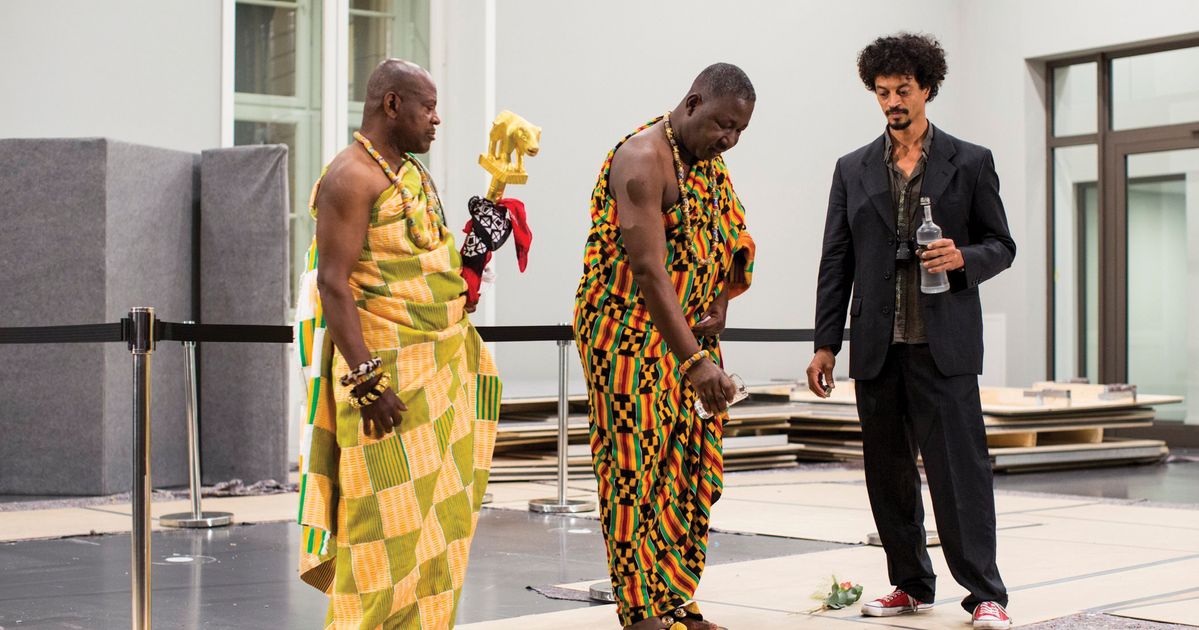
Africa’s partition and colonisation by European powers was debated and decided on in Berlin at a meeting called by Count Bismarck in 1884. German possessions in Africa included some of the places that were highly negatively impacted by the vices of colonialism, including massacres, genocides and appropriation of resources. Colonialism was about conquest, domination and control through force for purposes of resource extraction— including cultural resources.
With museums beginning to thrive in Europe around the 18th and 19th centuries, often with patronage from the aristocracy and the general ruling class, colonialism offered opportunities for collecting, including through the looting of others’ heritage. While there was also genuine acquisition of collections by European museums, the power imbalance between the conquerors and the conquered meant the latter had little to say in the appropriation of their heritage. The Ethnological Museum of Berlin was a beneficiary of collections from Namibia and Tanzania where there were massacres, as well as Togoland and Cameroon among others.
The proposed transfer of the collection of the Ethnological Museum to the Humboldt Forum has elicited different reactions; the idea, however, is not to empty the former for the benefit of the latter, but to effectively utilise the new space to exhibit the rich ethnological collections (currently in storage), while dedicating the Ethnological Museum to research, exhibition development, co-curation and co-creation between professionals from the Global South and German colleagues.
The Humboldt prides itself on having no collections of its own. But does this release it from any responsibility should it exhibit collections of questionable provenance or not engage critically with the discussion of restitution? The answer is: no.
Probably the most expensive building in Europe currently, much attention has been focused on the architecture rather than the proposed content and what it stands for.
The rebuilt castle is seen by some as Germany’s hegemony re-enacted, and nothing but a reinvention of the glorious past and a continuation of Germany’s imperial dreams.
Those who support the project, however, see it as Germany’s responsibility to acknowledge, respect and provide a platform for dialogue in a truly German set-up. The question of restitution as well as a new order of north-south relations will be key. The fact that the Humboldt Forum does not own its own collections will not exempt it from responsibilities to the affected parties. Exhibiting collections, from whichever source—some of which may have suspect origins—will put the Humboldt Forum at the centre of the restitution debate.
Irrespective of the various views, one should, however, be impressed with the fact that the German federal government has invested in the care, protection and exhibition of heritage of non-European origins. Through this space it can enhance the visibility of collections currently in the storage rooms of the Ethnological Museum. But due diligence in dealing with the collections on matters of contested heritage must be dealt with. There must be a clear policy that only objects of proper provenance can be used, and a decolonised process inclusive of voices from source countries must be put in place.
The team of international expert advisers (of which I am a part) have done their work in a forthright way and the forum has accepted their advice even when it appeared not easy.
The Humboldt Forum and its appropriation of the Ethnological Museum collections is a test case. Either this national project, vilified by some, becomes a success in the dialogue of positive human relations through heritage discourse—or a pariah as a reinvention of a dominant and dominating symbol of a royal past. The choices are open, including through its engagement with Germany’s inglorious past and the question of restitution and decolonisation that comes along with exhibiting these controversial collections.
• George Abungu is an archaeologist and the former director of the National Museums of Kenya. He was the chairman of the International Standing Committee on the Traffic of Illicit Antiquities and an international adviser to the Humboldt Forum
Source link : https://www.theartnewspaper.com/comment/humboldt-forum-success-or-pariah












